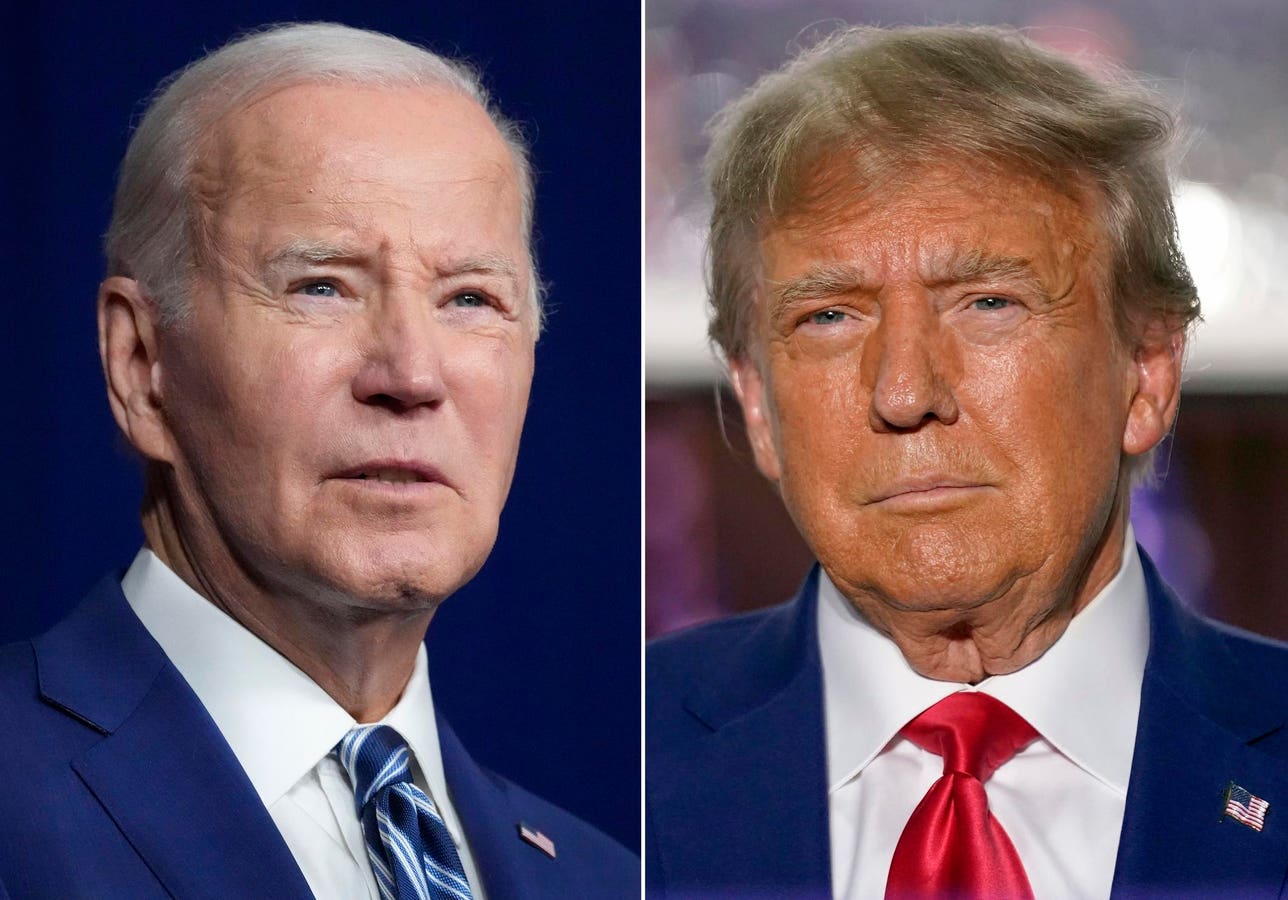The 2024 Biden-Trump Presidential rematch is officially on, and health issues will be a major election outcome determinant. As it is easier to promise than to deliver, the focus should be not only on the promises of the two party platforms, but also on the prospects for realization of those promises. The determinant of the latter will overwhelmingly rest with the action of The Federal Reserve (Fed) regarding setting interest rates.
Why the Fed and interest rates?
First, enactment of any policy, no matter how noble the intention, is limited by the ability to pay for it. Among the largest areas affected by interest rates is personal and employer-provided insurance coverage. About half of the adults in the U.S. say it is difficult to afford health care costs. Even those with health care insurance express concern about keeping up with rising premiums. Employers find themselves in equally turbulent waters. As insurance provider markets become more concentrated, even very large employers lack sufficient market power to rein in prices from health systems.
Second, biotech/pharma, and especially startups developing innovative technologies in the diagnostic and therapeutic arenas, are profoundly influenced by interest rates. As I wrote almost 10-years ago, what the Fed does impacts healthcare more than any other driver. Back then, Chair Yellin’s words affected the entire industry because, simply stated, healthcare, pharma and biotech valuations are inversely related to interest rates.
The Trump or Biden Policy Perspectives
While past performance may not be a guarantee of future outcomes, it remains one of the only methods of assessing the future of healthcare. President Trump’s administration promised a repeal and replacement of former President Barack Obama’s signature healthcare law. The late GOP Sen. John McCain’s iconic “thumbs-down” vote denied a full congressional repeal. However, there was some dismantling of parts of the law in the form of a rollback of the tax penalty for those who did not enroll in healthcare. The proposed replacement for the Affordable Care Act (ACA) with “insurance for everybody” never materialized. Given both the system’s complexities and countless vested interest groups, the chances of success for enacting any overhaul are remote at best.
Fast forward. Trump’s 2024 election cycle proposals echo those of 2017. His recent comments on the campaign trail suggest continued efforts to eliminate the ACA, reduce federal spending on Medicaid, restrict access to abortion and family planning, and eliminate any healthcare benefits for immigrants.
President Biden has clearly made healthcare a priority. His administration is focused on expanding access, lowering costs, and protecting key programs like Medicare and Social Security. The Biden agenda includes initiatives such as allowing Medicare to negotiate with prescription drug companies to lower drug costs; establishing a public health insurance option like Medicare to provide more Americans with affordable coverage; strengthening the ACA by enhancing marketplace subsidies that make health insurance more affordable for a broader range of Americans; addressing mental health and substance use disorders; and taking actions to improve the health of rural communities and rural health care providers.
Recently, President Biden added to his healthcare plan by establishing a $12B Women’s Health Initiative to expand research on women’s health issues and supporting the Advanced Research Projects Agency For Health (ARPA-H) for the development of biomedical and health breakthroughs.
While the Biden administration can claim progress has been made in various healthcare areas, challenges remain, such as ongoing pandemic response efforts, the opioid epidemic, and ensuring comprehensive healthcare reforms amidst political gridlocks. In the President’s State of the Union Address, many of the enumerated healthcare achievements are partial at best, and will certainly not endure a change in administration.
The Fed is the ultimate Determinator of Health Care Policy Success or Failure
One of the important factors, if not the most important factor, in ensuring the success or failure of any healthcare initiatives is the prevailing interest rate. Today, the Federal Open Market Committee (FOMC) decided to leave the rate at 5.25% to 5.5%. While higher rates can benefit savers with increased yields, they make borrowing more costly for consumers and businesses. On the other hand, cutting rates too soon or by too much raises concerns about inflation and economic stability. Such a cut would favor growth stocks like biotech, while leaving rates high would pose challenges for those at the early stages of development struggling to secure funding.
The entire globe constantly wrestles with healthcare expenditures, but analysis reveals different capital structures lead to different sensitivities to changes in interest rates. While public healthcare systems, such as the Italian, Canadian, and British, seem to be the least sensitive to changes in interest rates, more private-focused systems like that of the US appear to be the most sensitive. More inconclusive is the data collected about the healthcare capital structures based on Social Healthcare Insurance plans funded by governments. (At one extreme, the aging Japanese population may provide a cautionary tale.)
Analysis reinforces the expectation that countries with public healthcare systems will be affected the least by changes in the interest rate, followed by systems based on publicly funded Social Health Insurance. Counterintuitively, the more privately-oriented a country’s healthcare capital structure is, the more sensitive to changes in interest rates it will be. To this add the negative effects that higher interest rates have on the entire pharma/biotech industry and one sees dimmer prospects for a healthier America through innovative diagnostic and therapeutic developments.
Promises notwithstanding, the real future health of American healthcare lies with the seven-member Board of Governors at 1709 New York Avenue NW. Follow the money has never been such an appropriate directive.
Read the full article here





